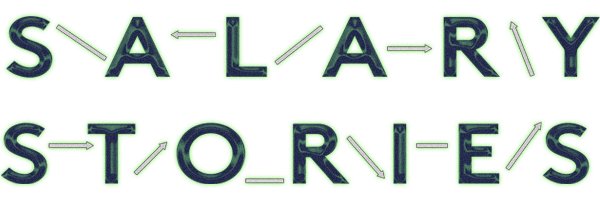
I Was Unhappy In My Career — So I Taught Myself Design & Now Make $108K
ADVERTISEMENT
In our series Salary Stories, women with long-term career experience open up about the most intimate details of their jobs: compensation. It’s an honest look at how real people navigate the complicated world of negotiating, raises, promotions, and job loss, with the hope it will give young women more insight into how to advocate for themselves — and maybe take a few risks along the way.
Been in the workforce for at least eight years and interested in contributing your salary story? Submit your information here.
Previously, we talked to an illustrator in Austin, an ad tech director in Chicago, and a senior program manager in Seattle.
Age: 30
Current Location: New York, NY
Current Industry & Title: Tech, Art Director
Starting Salary: $35,000
Current Salary: $108,000 + $8,000 in stock options
Number Of Years Employed: 7
Biggest Salary Jump: $40,000 to $75,000 in 2016
Biggest Salary Drop: $45,000 to $36,000 in 2013
Current Location: New York, NY
Current Industry & Title: Tech, Art Director
Starting Salary: $35,000
Current Salary: $108,000 + $8,000 in stock options
Number Of Years Employed: 7
Biggest Salary Jump: $40,000 to $75,000 in 2016
Biggest Salary Drop: $45,000 to $36,000 in 2013
Biggest Salary Negotiation Regret: “Being afraid to negotiate my salary in an initial offer! Every time that I would have a review or any kind of evaluation that came up, I truly left it up to my manager to tell me how much I should get for an increase, without me suggesting anything or coming to the table with any research.
“I never really was taught to be aggressive about money. I was taught to value job security above anything else. I had this irrational idea that if I tried to push to get more money, I was going to get the offer rescinded.
“It’s hard — I have gotten a lot of career coaching from really strong women in leadership roles at different companies that I’ve worked at, and one thing they’ve really advocated for is transparency around how much money you’re making. Even with the knowledge that I should be pushing, while negotiating the offer for my most recent job, I was shaking while on the phone, I was so nervous.”
Best Salary-Related Advice: “Don't just cite current market value as your reasoning behind a salary requirement. Speak to your experience and what you've accomplished. Don't be the first to bring up salary; ask questions about how they reach their initial offerings and ranges.
“Something surprising that worked for me in my mostly male-dominated previous company was bringing up the wage gap, especially between white men and Latina women, as a means for negotiating a raise. I began to do research before my annual review so that I could come prepared with an amount to propose for my raise. I did research around market value for my role based on the years of experience I had, but it occurred to me to bring in the fact that Latina women earn markedly less compared to white women and especially white men.
“Though I ultimately didn't get a monetary raise, I still presented my findings. I said I wanted a $5,000 raise because at the time, I was making $5,000 less than what Glassdoor told me was average market value for a senior designer with my experience. I presented this along with the work I had done in the year prior, and the fact that I was underpaid compared to the other senior designer on my team (the male coworker who was hired after me was making close to $100,000).”
ADVERTISEMENT
ADVERTISEMENT






